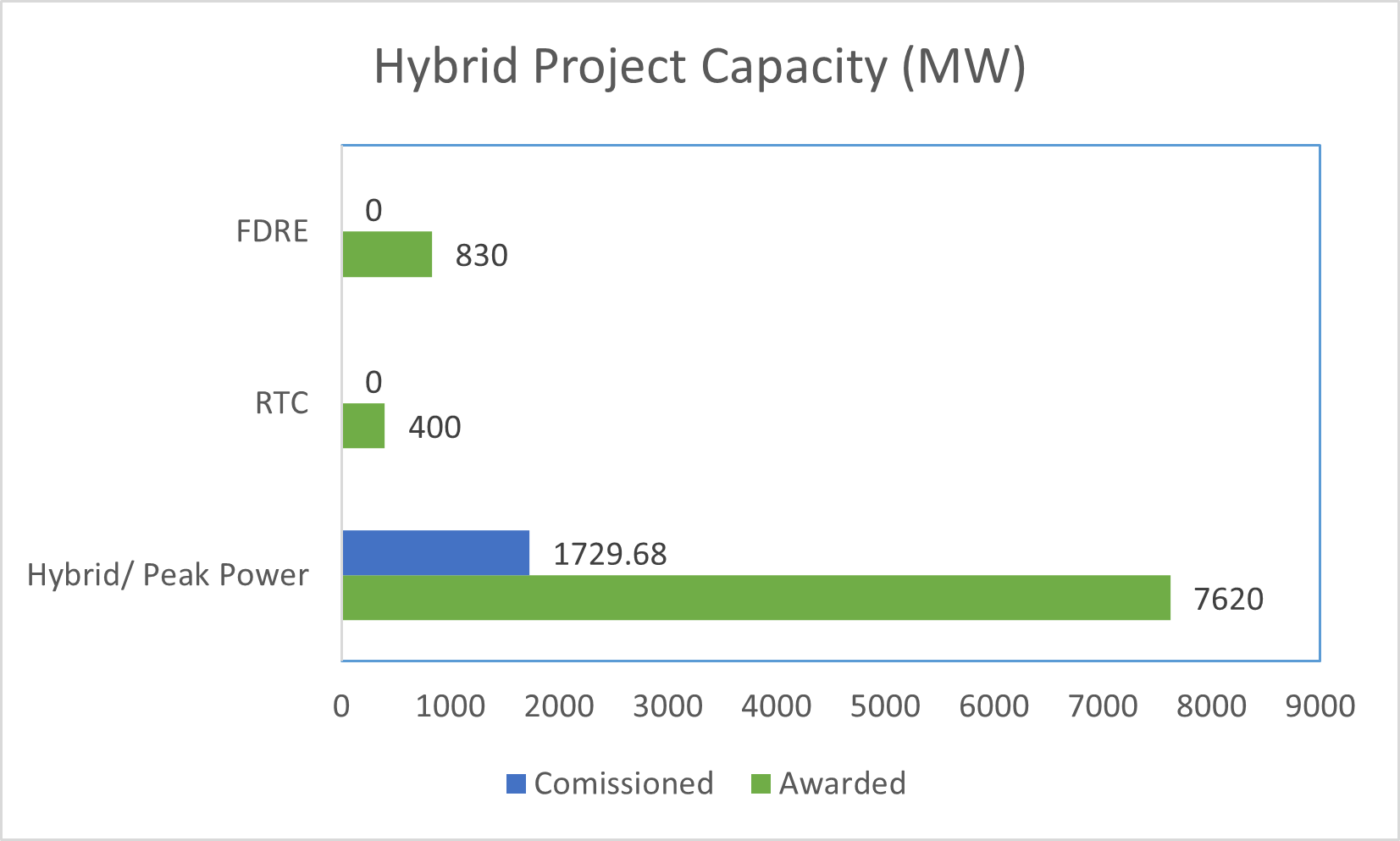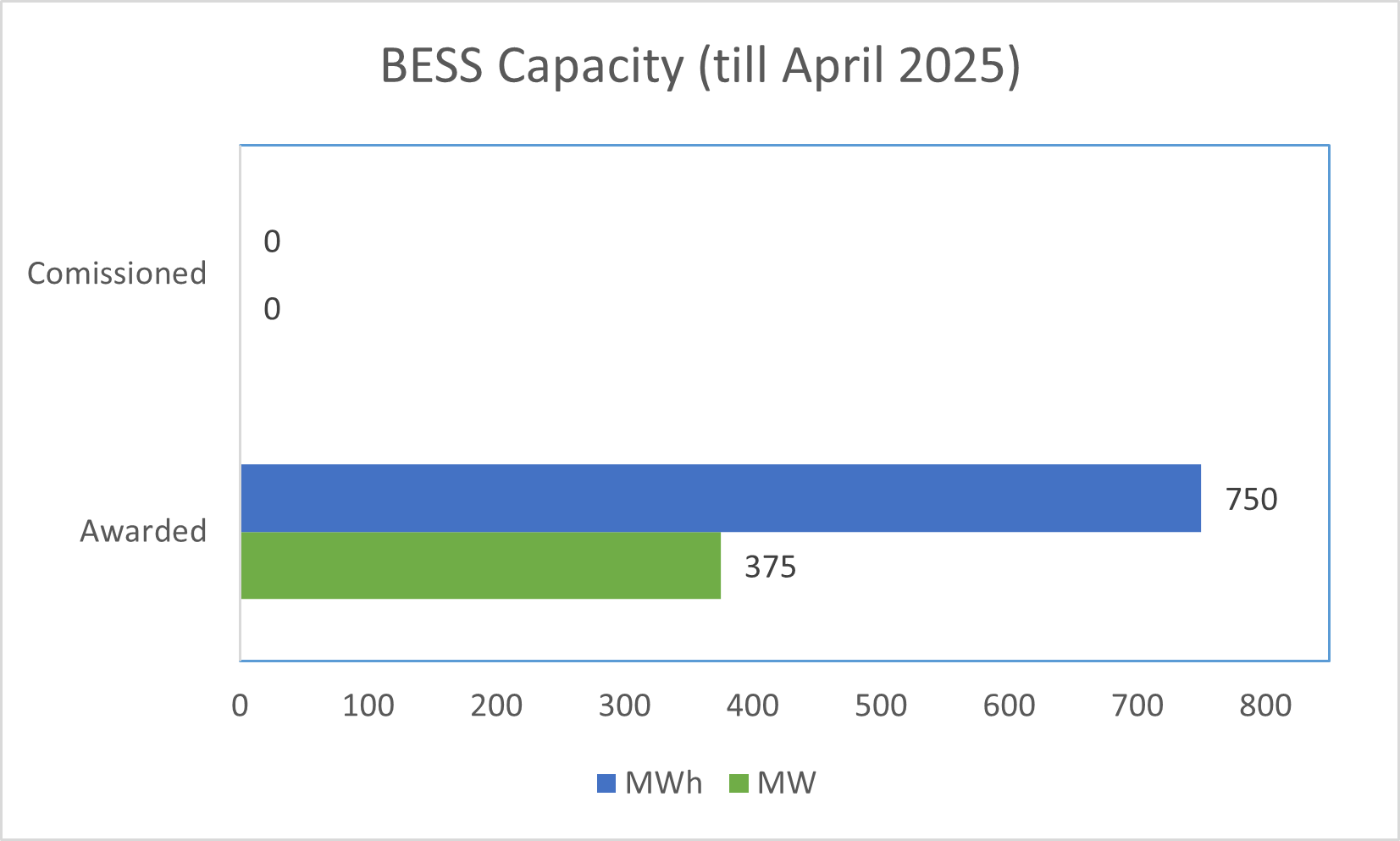
HYBRID
Hybrid renewable power projects- developed by integrating solar and wind energy generation, and coupled with energy storage if required- provide improved reliability and grid stability, ensuring a more consistent power supply.
Their higher capacity utilization factor (CUF) enhances energy generation efficiency compared to plain solar or wind projects.
Co-located hybrid projects optimize land utilization by using the same land for multiple energy sources. They also improve utilization of transmission infrastructure, banking of complementary generation profiles of different renewable energy sources.
There is also potential for energy storage integration, where batteries can store excess energy for better grid management.
Hybrid projects help in reducing grid stability issues caused by intermittent energy availability, as solar power is generated during the day while wind energy is stronger at night and during monsoons, ensuring a more balanced power supply. This makes hybrid projects the next step in accelerating renewable energy adoption.
SECI has introduced innovative tenders, such as Solar-Wind Hybrid Projects, RE with assured supply during peak hours, Round the Clock (RTC) RE Power, Firm and Dispatchable RE (FDRE) specifically designed to meet the demand requirements of distribution utilities.
For these projects, SECI floats tenders for selection of developers, through tariff- based competitive bidding, for setting up of projects on pan-India basis, and sign 25-year PPA for procurement of power from these projects for supply of such power to willing DISCOMs/buying entities through back-to-back 25-year PSAs.

Energy Storage Systems (ESS)
Energy storage with Pumped Hydro Storage Plants (PSP) and Battery Energy Storage Systems (BESS) enhances grid stability, reliability, and renewable integration. PSP enables long-duration storage, while batteries provide instant response for peak load management and frequency regulation. These systems reduce curtailment, and ensure energy security, supporting a cleaner, more efficient power grid.
SECI has awarded substantial energy storage capacities that are integrated with RE generation sources under various Hybrid, RTC etc. tenders awarded by SECI.
Further, in FY 2022-23, SECI had awarded 250 MW/500 MWh Standalone BESS tender, as the first-of-its-kind in the country as it would provide DISCOMs/buying entities with storage facilities to be used on an “on-demand” basis.
The integration of energy storage systems into the Indian Power sector is essential to enhance the utilization of renewable energy infrastructure.
